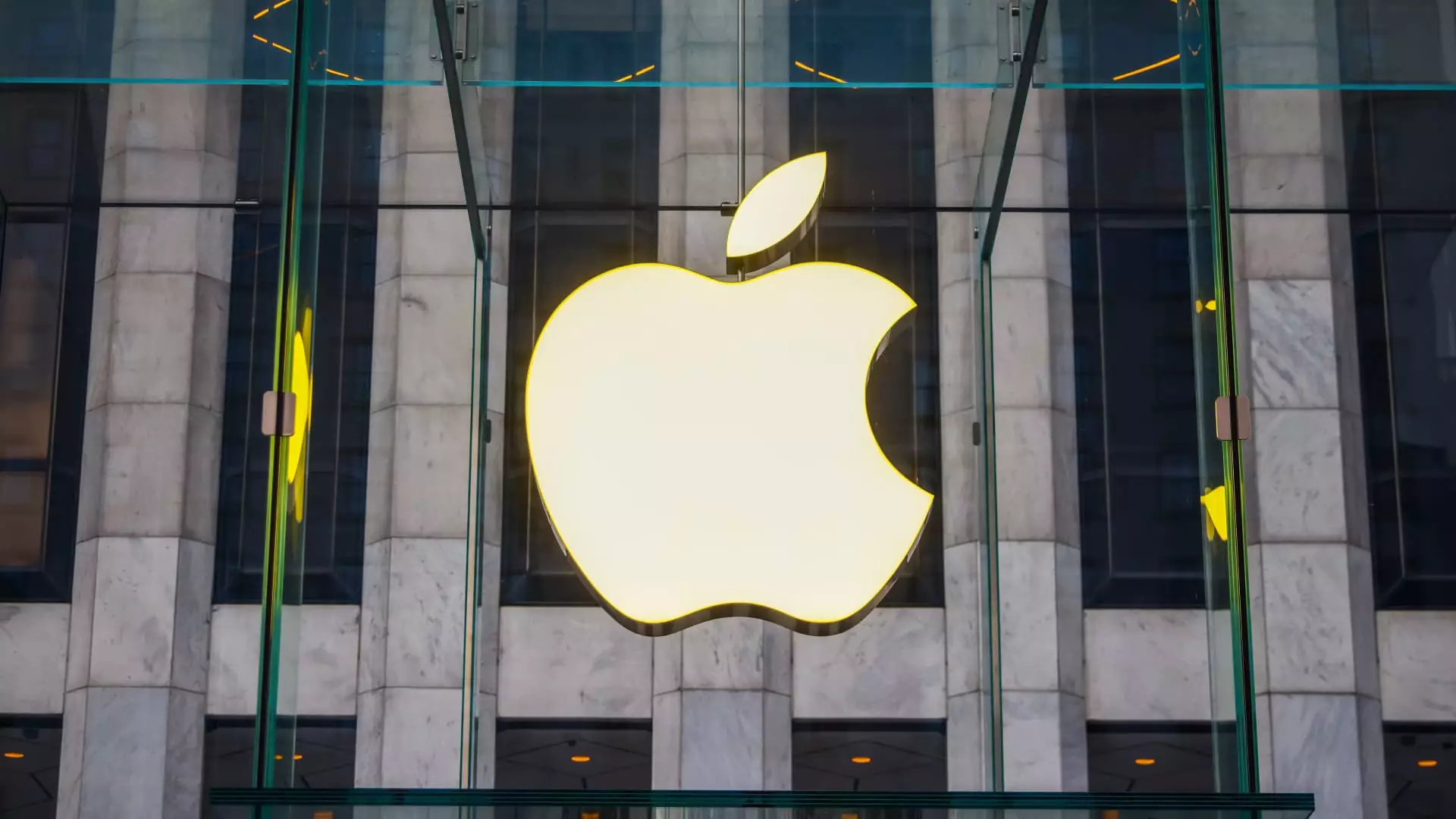In the world of investments, every decision made by influential companies sends rippling waves through the market, and Berkshire Hathaway’s recent disclosures regarding its Apple shares are no exception. Under the leadership of Warren Buffett, Berkshire Hathaway has historically regarded Apple as a cornerstone of its portfolio, consistently marking it as its most significant holding. However, the company’s recent move to reduce its Apple stake by approximately 25% during the third quarter, as reported in an earnings statement, raises eyebrows and incites scrutiny among investors and analysts alike.
Despite the reduction, Berkshire Hathaway managed to uphold a substantial $69.9 billion in Apple shares at the close of September. This figure emphasizes that while the stake has diminished, Apple remains a critical component of Berkshire’s investment strategy. The decision to dial back on Apple could stem from a variety of motives, including profit-taking after a fruitful investment run or reallocating capital into different opportunities. Nevertheless, this shift draws attention to the dynamics of long-term holding strategies in a volatile market.
The response to Berkshire Hathaway’s announcement was immediate and reflective of broader market sentiments. Apple stock fell by 1% during trading, the first indication of Wall Street’s reaction to the news. This decline came on the heels of a three-day losing streak, which had already placed the stock down by 5.5% from its recent peak of over $236 recorded just prior to their earnings announcement. Despite these shifts, Apple reported quarterly earnings that surpassed expectations on both revenue and earnings per share, demonstrating the company’s resilience in a challenging economic environment.
This juxtaposition between the stock’s performance and Berkshire Hathaway’s holding decisions illustrates the complex psychology enveloping investor decisions. While Apple continues to showcase robust financial health, the reduction in holdings by an investor of Buffett’s stature can’t be overlooked. It signals potential caution, nudging other investors to rethink their positions, even amid strong company performance.
Following the news, analysts have expressed a spectrum of opinions regarding Apple’s future trajectory. Loop Capital, for instance, reduced its price target for Apple from $300 to $275, a decrease that nonetheless suggests a roughly 24% upside potential based on the stock’s Friday closing price. In contrast, Morgan Stanley analysts pointed to Apple’s exceptional operating margins, which have reached their highest levels in a decade.
Amidst this ambiguity, Bank of America analysts highlighted an uptick in global App Store revenue and increased downloads. These developments inject a note of optimism for Apple, suggesting that the company’s ecosystem continues to grow, which could signal sustained profitability and market dominance. Yet, the conflicting assessments underline the uncertainty plaguing the tech sector and highlight the differing perspectives analysts hold regarding the company’s future.
As Apple investors navigate this barrage of news, Jim Cramer’s advice to “own it, don’t trade it” emphasizes a fundamental investment principle—a call for focus on the long-term rather than immediate market fluctuations. Cramer’s statement encapsulates a wider perspective embraced by many seasoned investors: the volatile nature of markets can often distract from the underlying health of a company. The notion that Berkshire’s reduction of holdings does not necessarily reflect dire conditions at Apple reiterates the importance of contextualizing investment decisions against broader market behaviors.
Apple is renowned for its innovation and market strength, factors that have consistently drawn significant investor interest. Hence, while the market may reflect momentary dips, the commitment to fundamentally sound companies like Apple often pays off in the long run. Investors would do well to tune out the noise, assess investment decisions rationally, and recognize that even the most successful investors occasionally reassess their holdings without signaling the failure of a company. As the narrative unfolds, both Berkshire Hathaway and Apple will continue to be in the spotlight, illustrating the intricate dance between investment strategies and market perceptions.

Leave a Reply